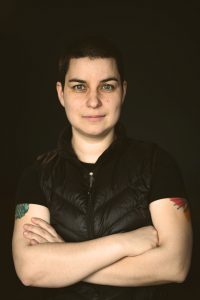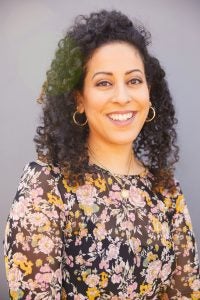 Research, communication, and land relations
Research, communication, and land relations
Dr. Max Liboiron, Memorial University of Newfoundland
Thursday, October 14, 2021
Watch on YouTube
All research methods can align with or against colonialism, as all research methods have land relations. Even when researchers and communicators are working toward benevolent goals such as environmentalism, conducting environmental science, communication, and activism van reproduce colonial worldviews and land relations. Dr. Max Liboiron will draw on their new book, Pollution is Colonialism, including discussing some of the strategies used by their anticolonial scientific laboratory, CLEAR, to put good land relations at the forefront of research and laboratory culture. In CLEAR and in many other places, anticolonial science is not only possible, it is currently being practiced in ways that enact more ethical modes of being in the world.
Dr. Max Liboiron (Michif, they/she) develops and promotes anticolonial research methods in a wide array of disciplines and spaces. As founder of CLEAR, an interdisciplinary plastic pollution laboratory whose methods foreground humility and good land relations, Liboiron has influenced national policy on both plastics and Indigenous research, invented technologies and protocols for community monitoring of plastics, and is the author of Pollution is Colonialism (Duke University Press, 2021). Dr. Liboiron is an Associate Professor in Geography and is formerly the Associate Vice-President (Indigenous Research) at Memorial University.
 How Inclusive Science Communication Builds and Keeps Public Trust
How Inclusive Science Communication Builds and Keeps Public Trust
Jessica Malaty Rivera, Infectious disease epidemiologist and science communication lead at the COVID Tracking Project
Saturday, October 16
Watch on YouTube
Trustworthiness is achieved when people develop supportive and equitable relationships, and this is especially critical in matters of health. Jessica Malaty Rivera argues that the responsibility for building trust of medical professionals among communities of color must shift to reduce the risk of isolating more people in cycles of fear, shame, and targeted misinformation.
Jessica Malaty Rivera is an infectious disease epidemiologist and science communicator. She earned her MS in Emerging Infectious Diseases from Georgetown University School of Medicine and has dedicated the last 15 years of her career to disease surveillance research, public health policy, and vaccine advocacy. Her specialty is in translating complex scientific concepts into impactful, judgement-free, and accessible information for a diverse audience. She is currently the Science Communication Lead for The COVID Tracking Project at The Atlantic, a Research Fellow at Boston Children’s Hospital Innovation & Digital Health Accelerator, an Infection Preventionist for Netflix, and an expert contributor for NBC Bay Area and CNN. Jessica was recently named one of the World’s 50 Greatest Leaders by Fortune Magazine for her work on COVID-19 research and data communication. Between her day jobs and being a full time mother to two little kids, she also dedicates several hours a week to promoting science literacy and debunking misinformation on social media.
